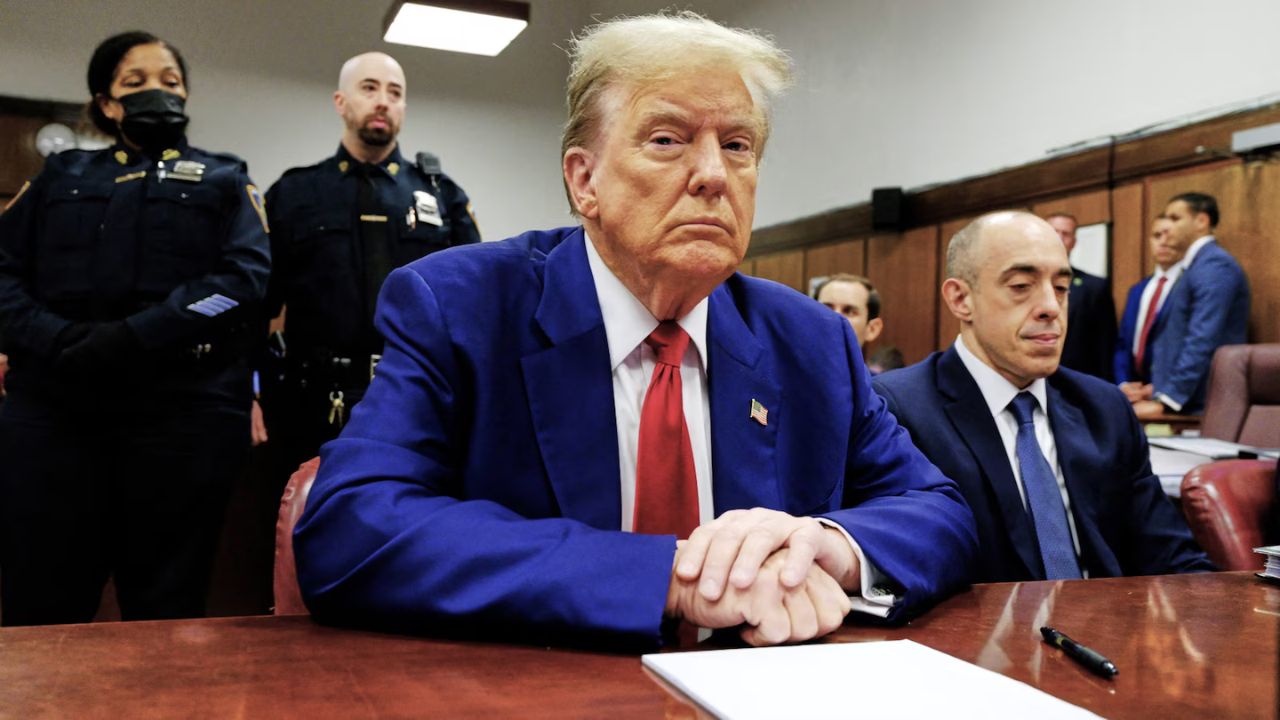Four Significant Takeaways From Day 9 Of Trump’s Trial Over Hush Money
During Tuesday’s proceedings in Trump’s criminal hush money trial, a Los Angeles-based attorney representing both Stormy Daniels and Karen McDougal described to jurors how he mediated two agreements to keep their alleged affairs with the president out of print. He claimed to have interpreted the “catch-and-kill” schemes as a way to shield Trump from political liabilities.

The former president is charged with fabricating financial documents to conceal the return of a hush money payment made to Daniels by his former attorney Michael Cohen, to enhance Daniels’ chances of winning the 2016 presidential election. He has repudiated all misconduct.
In response to the “Access Hollywood” tape, when Trump was heard boasting about snatching women, Stormy Daniels’ accusation “reached a crescendo” in late 2016, according to Keith Davidson, who testified on Tuesday. Davidson added that he thought Trump would pay the price for her silence rather than Michael Cohen, who eventually made the payment.
At the start of the day, Judge Juan Merchan fined the former president $9,000 and declared him to be in criminal contempt for his repeated violations of the case’s limited gag order. He scheduled a hearing for Thursday at 9:30 a.m. to hear arguments regarding Trump’s four further infractions.
These are the main conclusions from the trial’s ninth day.
Lawyer alleges Stormy Daniels’ deal was all about the election
In his testimony, Keith Davidson said he became more and more irritated with Michael Cohen in the weeks preceding the 2016 presidential election. Cohen, a former Trump fixer, kept delaying Stormy Daniels’ payment after striking a deal in exchange for her silence.
“I thought he was trying to kick the can down the road until after the election,” Davidson said.
The district attorney’s case was fundamentally undermined by Davidson’s evidence, which linked Cohen’s actions—or lack thereof—to Trump’s political aspirations.
Cohen reportedly remarked to Davidson, “What do you expect me to do—my guy is in five f—— states today.” “I am doing everything I can.”
Though, according to Davidson, “Michael Cohen didn’t have the authority to spend money,” he still anticipated that Trump would eventually pay for the transaction.
“Where did you believe the money to be coming from?” prosecutor Josh Steinglass asked.
“From Donald Trump or some kind of corporate affiliation thereof,” Davidson said.
Davidson recounts selling McDougal’s story to Enquirer
Davidson texted National Enquirer editor Dylan Howard on June 7, 2016, claiming, “I have a blockbuster Trump story.”
In less than a minute, Howard answered.
“Talk 1st thing,” he replied. “I will get you more than ANYONE for it. You Know why…”
Numerous texts that the two men later exchanged during discussions were viewed by the jury. Davidson claims that McDougal was “teetering between two different deals” at the time, but the only outlet that could provide her what she truly desired—namely, the ability to avoid having to reveal her story—was the National Enquirer.
McDougal wanted to “rejuvenate her career, to make money,” Davidson explained. But she also wanted “to avoid telling her story,” or become the “Scarlet Letter, the ‘other woman.'”
Trump held in criminal contempt, ordered to pay $9,000
Judge Juan Merchan found that Trump was in criminal contempt prior to Tuesday’s testimony because he had persistently disregarded the case’s limited gag order by pursuing possible witnesses on social media and in other online forums.
For each of the nine infractions, Merchan imposed a $1,000 fine on Trump and threatened to put him in jail if he disobeyed the court’s orders. In addition, Trump was told to pay the fee by this Friday at the latest and erase the offending posts, which he completed during his lunch break.
The judge stated that he was still taking into account further requests for contempt related to potential future violations of the gag order.
Jury sees videos of Trump
The first meaningful remarks made by Donald Trump to the jury during his trial were shown to them on a video screen rather than in person, and they mirrored remarks he made in 2016 and 2017 regarding women who came forward with allegations of extramarital affairs.
Videos from two 2016 campaign events and a 2017 press conference he held after winning the presidency were shown by the prosecution.
“I have no idea who these women are. I have no idea,” Trump said in one of the videos. “The stories are total fiction. They are 100% made up. They never happened. They never would happen.”


Comments are closed.